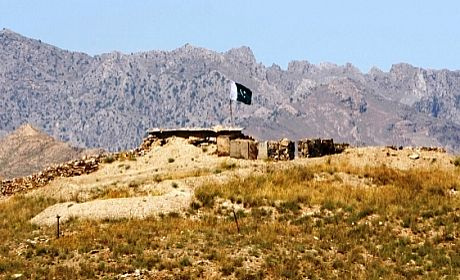Who Gave Islamabad the Green Light?

During the past few days, there have been border clashes between Afghanistan and Pakistan. Has there been any precedence to this matter?
The hostilities that exist between Afghanistan and Pakistan are divided into two parts: one part of these hostilities is related to the foreign forces, especially the American forces. This means that the Americans, at least during the past three years, have repeatedly flown their drones or launched missiles from inside Afghanistan towards certain targets in Pakistan. This had been accepted and had led to no direct reaction from the government of Pakistan. The second part, which happens occasionally, is related to the direct conflicts between the military forces of the two countries. More than a year ago, parts of Nangarhar in eastern Afghanistan were bombarded. The Afghans believed that it was Pakistan that was bombarding this area and the Pakistanis also believed that the first attack had been launched by the Afghans. Thus, such conflicts are nothing new.
Then why have the recent conflicts been paid more attention to?
What has now happened is new because the foreigners are somehow involved in these events. It seems that the foreign forces have given certain concessions to Islamabad. In other words, although there is no firm evidence with regard to this matter, it seems that the status of Islamabad in the issue of Afghanistan has somehow been promoted and its hands are now more open with regard to its goals and it has pursued a more aggressive approach. Kabul became very dissatisfied and stated its complaint especially when some of the buildings and properties in the border area of Durand were given to the Pakistanis by the Americans. The result is the present situation where, after a long time, there have been protests in Afghanistan against Pakistan. Either these protests were organized by the government or kept silent by it. In these protests, the Pakistani flag was set in fire. International observers are now concerned about the situation, for the winner of these unrests is the radical movement, a consequence which is not to the benefit of the region. But, it can generally be said that the feeling of parts of these forces in Islamabad is that their hands are now more open for a more aggressive approach with regard to the issue of Afghanistan.
Considering the withdrawal of US forces in 2014, what impacts, in your opinion, will this tension have on these two countries?
When there is tension in relations between neighboring countries, neither of them would benefit from it. The same is true with regard to these two countries. It seems that under such conditions, the foreign forces also believe that they can take advantage of this situation and manage the issue to their own advantage. This is also wrong. Past experiences have shown that there will be no winner when there is tension and everybody would lose. Now the tension between the countries has reached a point where the Pakistani flag is burnt in Afghanistan while millions of Afghans live inside Pakistan. Pakistan has welcomed the Afghans during difficult years. This issue can hurt the sentiments of the people of Pakistan with regard to this issue. It seems that the foreign forces, or the third movement, have not taken effective measures to prevent such a situation. Furthermore, besides the analysis which states that the hands of parts of the forces inside Pakistan are now more open for aggressive behavior in Afghanistan, what seems to have provoked this matter is the issue of the US handing over buildings.
During recent days, Mr. Dobbins has been introduced as the US envoy to Afghanistan and Pakistan. Can he, in your opinion, act more effectively with regard to these matters?
If he is the same individual who was active in Afghanistan a decade ago, it can be said that he has lots of experience with regard to the issues of Afghanistan and Pakistan. He was active in the Bonn process and knows the region well and he has been able to manage issues well. At that time, he appeared to have a non-partisan approach inside the US administration. The Republicans were then in power. The fact that he is appointed when the Democrats are in power means that they intend to use his experience and knowledge about the geography and issues of Afghanistan. This issue is significant during the withdrawal process, which is a very important process. The US does not want this process to be costly. Afghanistan is going to hold elections. The US attempts to use the closest individual to the issue to gain maximum benefits by using past experiences. He has lots of experience. He has also written some texts about Afghanistan in the past. It seems that he knows the issues on both sides of the Durand line and has worked on them.

